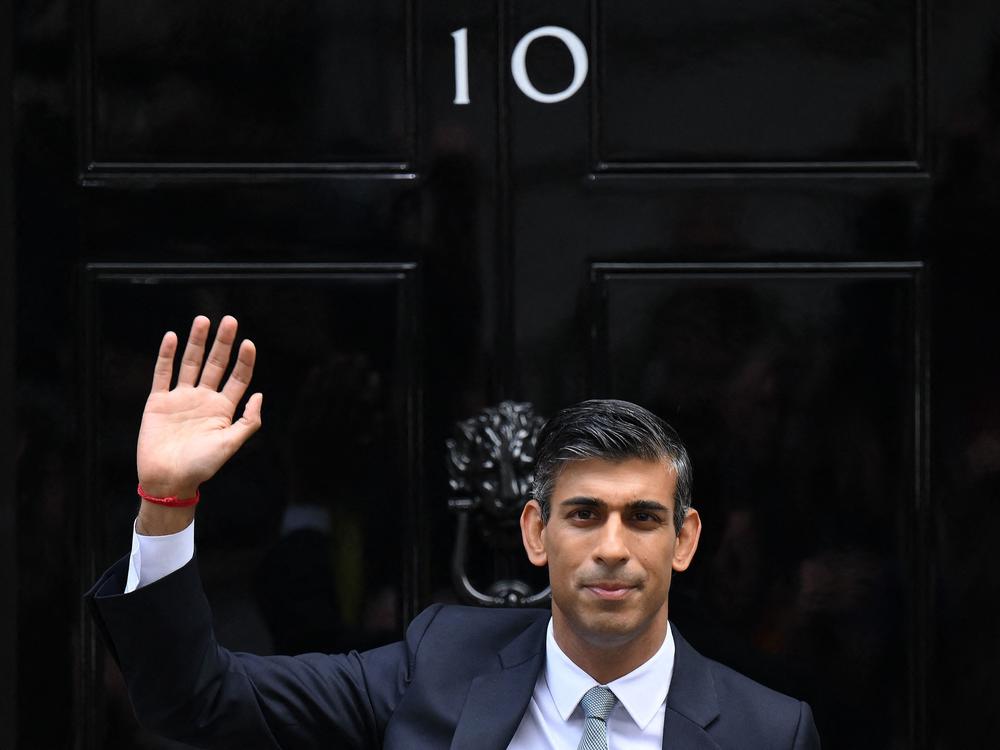Section Branding
Header Content
Rishi Sunak takes over as U.K. PM facing enormous economic and political challenges
Primary Content
LONDON — Rishi Sunak becomes Britain's third prime in under two months at a time when the U.K. faces what he has termed a "profound economic challenge" and as his Conservative Party struggles to heal divisive wounds from months of infighting.
He now leads the Conservatives with a substantial parliamentary majority inherited since the 2019 general election, when his former boss Boris Johnson helped win seats in areas of Britain that had never traditionally voted for the center right party.
"It is only right to explain why I am standing here as your new prime minister," Sunak told the crowd of journalists gathered outside No. 10 Downing Street's famous front door, after formally accepting his new role from King Charles during a meeting at Buckingham Palace.
"Right now our country is facing a profound economic crisis," he said. "The aftermath of COVID still lingers."
After Liz Truss' imploded premiership left the Conservative poll numbers sinking to historic lows, Sunak will have around two years to restore confidence among his legislators that they can retain power at the next national vote after 12 years of leading the government.
"It's the Conservative Party's last chance to put in a prime minister who might achieve some kind of stability," says Bronwen Maddox, CEO of Chatham House, the London-based think tank." She says Sunak now has to "try to set out an economic plan and a plan for the country that gives the country some reassurance and may even bring his party to a kind of unity, but that remains the big question."
That economic plan will be slightly easier to formulate now than it would have been even two weeks ago, as financial markets have reacted positively to his selection, and after the country's new finance minister Jeremy Hunt cancelled tax cuts trumpeted by Truss and her team. Hunt's role as a stabilizing force may help him retain the role that he was appointed to by Truss.
That market reaction has meant government borrowing costs have fallen to where they had been before Truss took the reins, reducing government spending on interest and thus allowing Sunak to better balance the books when he needs to borrow money to fund long-term spending. But he will still need to deal with high inflation levels, elevated energy prices and a soaring cost of living.
The decisions over taxation levels and spending choices will no doubt stir controversy and prompt pushback, not only from his political opponents, including the Labour Party — which is riding high in polls — but also among his fellow Conservative legislators.
Maddox, from the non-partisan Chatham House, says Truss's disastrous approach to the country's economic problems gives Sunak a freer hand to level with the public about the inevitable tradeoffs and make some of the tougher economic decisions.
"He now has more support for saying we have to be really very conservative ... economically," she says. "We have to explain where money is coming from that we're going to spend, and that is going to mean some tax rises in some cases and paring back spending in others and it's really a difficult moment."
Threading a needle that maintains party unity, stabilizes the country's economy and also works towards galvanizing growth will mean few of even his greatest critics will envy the challenging in-tray in today's Downing Street.
NPR's Frank Langfitt contributed to this report from London.
Copyright 2022 NPR. To see more, visit https://www.npr.org.

